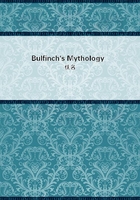
第49章
But his act was a signal for an onset by his band upon the guests of Cepheus. They defended themselves and a general conflict ensued, the old king retreating from the scene after fruitless expostulations, calling the gods to witness that he was guiltless of this outrage on the rights of hospitality.
Perseus and his friends maintained for some time the unequal contest; but the numbers of the assailants were too great for them, and destruction seemed inevitable, when a sudden thought struck Perseus: "I will make my enemy defend me." Then, with a loud voice he exclaimed, :If I have any friend here let him turn away his eyes!" and held aloft the Gorgon's head. "Seek not to frighten us with your jugglery," said Thescelus, and raised his javelin in act to throw, and became stone in the very attitude.
Ampyx was about to plunge his sword into the body of a prostrate foe, but his arm stiffened and he could neither thrust forward nor withdraw it. Another, in the midst of a vociferous challenge, stopped, his mouth open, but no sound issuing. One of Perseus's friends, Aconteus, caught sight of the Gorgon and stiffened like the rest. Astyages struck him with his sword, but instead of wounding, it recoiled with a ringing noise.
Phineus beheld this dreadful result of his unjust aggression, and felt confounded. He called aloud to his friends, but got no answer; he touched them and found them stone. Falling on his knees and stretching out his hands to Perseus, but turning his head away, he begged for mercy. "Take all," said he, "give me but my life." "Base coward," said Perseus, "thus much I will grant you; no weapon shall touch you; moreover you shall be preserved in my house as a memorial of these events." So saying, he held the Gorgon's head to the side where Phineus was looking, and in the very form in which he knelt, with his hands outstretched and face averted, he became fixed immovably, a mass of stone!
The following allusion to Perseus is from Milman's Samor:
"As 'mid the fabled Libyan bridal stood Perseus in stern tranquillity of wrath, Half stood, half floated on his ankle-plumes Out-swelling, while the bright face on his shield Looked into stone the raging fray; so rose, But with no magic arms, wearing alone Th' appalling and control of his firm look, The Briton Samor; at his rising awe Went abroad, and the riotous hall was mute."Then Perseus returned to Seriphus to King Polydectes and to his mother Danae and the fisherman Dicte. He marched up the tyrant's hall, where Polydectes and his guests were feasting. "Have you the head of Medusa?" exclaimed Polydectes. "Here it is,"answered Perseus, and showed it to the king and to his guests.
The ancient prophecy which Acrisius had so much feared at last came to pass. For, as Perseus was passing through the country of Larissa, he entered into competition with the youths of the country at the game of hurling the discus. King Acrisius was among the spectators. The youths of Larissa threw first, and then Perseus. His discus went far beyond the others, and, seized by a breeze from the sea, fell upon the foot of Acrisius. The old king swooned with pain, and was carried away from the place only to die. Perseus, who had heard the story of his birth and parentage from Danae, when he learned who Acrisius was, filled with remorse and sorrow, went to the oracle at Delphi, and there was purified from the guilt of homicide.
Perseus gave the head of Medusa to Minerva, who had aided him so well to obtain it. Minerva took the head of her once beautiful rival and placed it in the middle of her Aegis.
Milton, in his Comus, thus alludes to the Aegis:
"What was that snaky-headed Gorgon-shield That wise Minerva wore, unconquered virgin, Wherewith she freezed her foes to congealed stone, But rigid looks of chaste austerity, And noble grace that dashed brute violence With sudden adoration and blank awe!"Armstrong, the poet of the Art of Preserving Health, thus describes the effect of frost upon the waters:
"Now blows the surly North and chills throughout the stiffening regions, while by stronger charms Than Circe e'er or fell Medea brewed, Each brook that wont to prattle to its banks Lies all bestilled and wedged betwixt its banks, Nor moves the withered reeds. . . .
The surges baited by the fierce Northeast, Tossing with fretful spleen their angry heads, E'en in the foam of all their madness struck To monumental ice.
Such execution, So stern, so sudden, wrought the grisly aspect Of terrible Medusa, When wandering through the woods she turned to stone Their savage tenants; just as the foaming lion Sprang furious on his prey, her speedier power Outran his haste, And fixed in that fierce attitude he stands Like Rage in marble!"Imitations of Shakespeare Of Atlas there is another story, which I like better than the one told. He was one of the Titans who warred against Jupiter like Typhoeus, Briareus, and others. After their defeat by the king of gods and men, Atlas was condemned to stand in the far western part of the earth, by the Pillars of Hercules, and to hold on his shoulders the weight of heaven and the stars.
The story runs that Perseus, flying by, asked and obtained rest and food. The next morning he asked what he could do to reward Atlas for his kindness. The best that giant could think of was that Perseus should show him the snaky head of Medusa, that he might be turned to stone and be at rest from his heavy load.